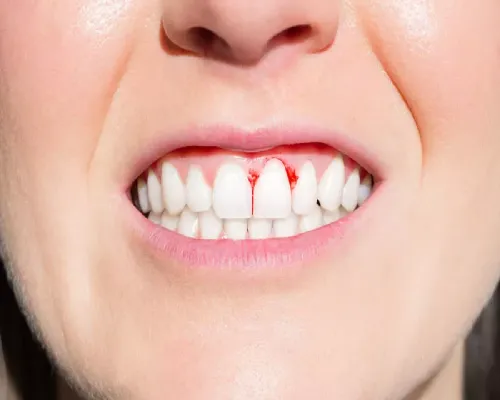laser gum treatment
Gum problems, also known as periodontal disease or gum disease, refer to a range of conditions that affect the tissues supporting and surrounding the teeth. These conditions can range from mild inflammation of the gums (gingivitis) to more severe forms of periodontal disease that can lead to tooth loss if left untreated.
The main factors that contribute to the development of gum disease include:
- Poor Oral Hygiene: Inadequate or improper brushing and flossing allow plaque to build up on teeth, leading to gum inflammation. laser gum treatment
- Tobacco Use: Smoking and chewing tobacco can significantly increase the risk of gum disease.
- Genetics: Some people may be genetically inclined to gum disease. It’s possible to be more susceptible even with good oral hygiene practices.
- Hormonal Changes: Hormonal fluctuations, such as those during puberty, pregnancy, and menopause, can make gums more sensitive and prone to gum disease. laser gum treatment
- Systemic Diseases: Certain diseases like diabetes and HIV/AIDS can weaken the immune system and increase the risk of gum disease.
- Medications: Some medications, such as certain anticonvulsants and anti-angina drugs, can affect oral health. Additionally, some medications may cause dry mouth, reducing saliva flow which helps protect against gum disease. laser gum treatment
- Poor Nutrition: A diet lacking essential nutrients can weaken the immune system, making it harder for the body to fight off gum infections.
- Stress: Chronic stress can weaken the body’s immune system, making it harder to fight off infections, including gum disease. laser gum treatment
- Teeth Grinding (Bruxism): Clenching or grinding your teeth can put extra pressure on the supporting tissues of the teeth, potentially leading to gum problems.
- Misaligned Teeth: Crowded or crooked teeth can make it harder to clean properly between teeth and can contribute to gum disease. laser gum treatment
Here are some common gum problems and their treatment options:
- Gingivitis:
- Description: This is the mildest form of gum disease. It’s characterized by red, swollen gums that bleed easily, especially during brushing or flossing.
- Treatment:
- Professional Dental Cleaning: This involves removing plaque and tartar buildup from the teeth and below the gumline. laser gum treatment
- Improved Oral Hygiene: Regular brushing, flossing, and using an antiseptic mouthwash can help control gingivitis.
- Periodontitis:
- Description: This is an advanced form of gum disease characterized by deeper pockets forming between the gums and teeth, along with gum recession and bone loss.
- Treatment:
- Scaling and Root Planning: This is a deep cleaning procedure where the dentist or hygienist removes plaque and tartar from below the gumline and smoothens the tooth roots to help the gums reattach. laser gum treatment
- Antibiotics: In a few cases, antibiotics may be given to control bacterial infection.
- Surgery: In severe cases, surgical interventions like flap surgery, bone grafts, or tissue grafts might be necessary.
- Gum Abscess:
- Description: This is a localized collection of pus that forms within the gum tissues, usually as a result of a bacterial infection.
- Treatment:
- Incision and Drainage: The abscess is opened and drained to remove the pus.
- Antibiotics: These may be prescribed to clear the infection. laser gum treatment
- Gum Recession:
- Description: This occurs when the gum tissue surrounding the teeth pulls back, exposing more of the tooth and its root.
- Treatment:
- Gum Grafting: This involves taking tissue from one area (often the roof of the mouth) and attaching it to the area with receding gums. laser gum treatment
- Dental Abscess:
- Description: This is a collection of pus that forms inside the teeth or in the gums due to a bacterial infection.
- Treatment:
- Root Canal Treatment: This involves removing the infected pulp, cleaning the inside of the tooth, and sealing it. laser gum treatment
- Tooth Extraction: In severe cases, the tooth may need to be removed.
- Oral Cancer:
- Description: This is a serious condition that can affect the gums, among other oral tissues.
- Treatment:
- Surgery, Radiation, or Chemotherapy: Depending on the stage and location of the cancer, various treatments may be used. laser gum treatment
It’s important to note that prevention is the best approach to gum problems. This includes regular dental check-ups, good oral hygiene practices, and a healthy diet. If you suspect you have gum problems, it’s crucial to consult a dentist in Nashik promptly for proper diagnosis and treatment.


